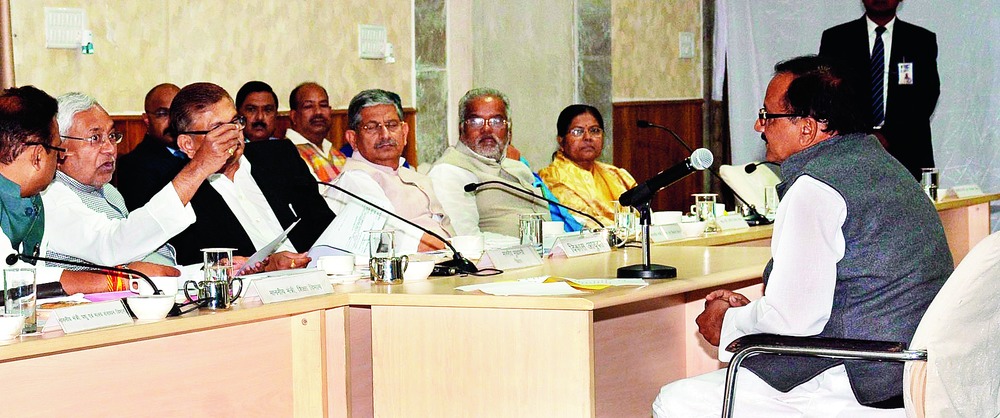
Chief minister Nitish Kumar on Monday said he would raise the issue of generic drug being costlier than branded ones with the Centre after getting to know that from a participant at his Lok Samvad (public interaction).
Generic drug are just the chemical composition of a given medicine mentioned on their wrappers. They are generally sold at prices lower than branded drug, which are manufactured by pharmaceutical companies and sold under different names in the market.
Mohammad Parvez Shaheen from Purnea pointed out the anomaly - the maximum retail price (MRP) of many generic drug were higher than their branded counterparts. He demanded that medicines carry a minimum standard mark on them, similar to Agmark and FSSAI (Food Safety and Standards Authority of India) marks on food products.
Nitish immediately enquired about the matter with principal health secretary R.K. Mahajan. He admitted the prevalence of such a situation in the market and a "need to cut down the profit margin on generic medicines".
The National Pharmaceutical Pricing Authority under the Union ministry of chemicals and fertilisers fixes the MRP ceiling on medical drug. The state government has no say in the process.
"We wrote to the Centre last year that cancer drug priced around Rs 2,000 should be priced between Rs 1,000 and Rs 1,200," Mahajan said.
In response, Nitish said: "We will take up the matter with the Centre."
The Bihar government has a policy of providing free medicines to patients in government hospitals. However, people are forced to buy them from the open market, as all drug are not available in government hospitals.
To control the high rates being charged for generic medicines, the state government has directed medical shops in government hospitals and dispensaries in districts to sell generic drug at 50 per cent of their MRP. The selling price at shops at PMCH, NMCH and other medical college and hospitals are fixed at "cost of the medicine plus 10 per cent profit".
However, these shops in government hospitals do not stock all drug and people are forced to buy from private shops that charge the MRP.
Asked about the names of generic drug that have MRPs more than branded drug, Patna Chemists and Druggists Association general secretary Santosh Kumar told The Telegraph: "The MRPs of all generic medicines are higher than the branded ones in the market. This is a paradox in our country that the aim of allowing generic drug was to provide cheaper medicines to the poor. But politicians played such a trick that their prices were allowed to be higher than the branded drug."
Another participant at Lok Samvad, Mohammad Amirul Haq from Patna, suggested that transfer certificates issued to students by government middle schools should have names of students and their parents in English to cut down the chances of mistakes while filling up matriculation examination registration forms, which have to be filled in English.
This attracted Nitish's attention as to why the registration forms were not in Hindi (the raj bhasha) or the state language. He said it was necessary according to law to have them in Hindi with Devnagriscript and at the best, English could be added to help students get bi-lingual certificates to allow them to go to non-Hindi states to pursue higher studies.
"We must bear in mind that China, Russia, Germany, France or Japan did not develop owing to English but due to knowledge, hard work and technology. Our work should be done in Hindi with Devnagri script. English options could be made available and certificates could be issued in both the languages," said Nitish.











